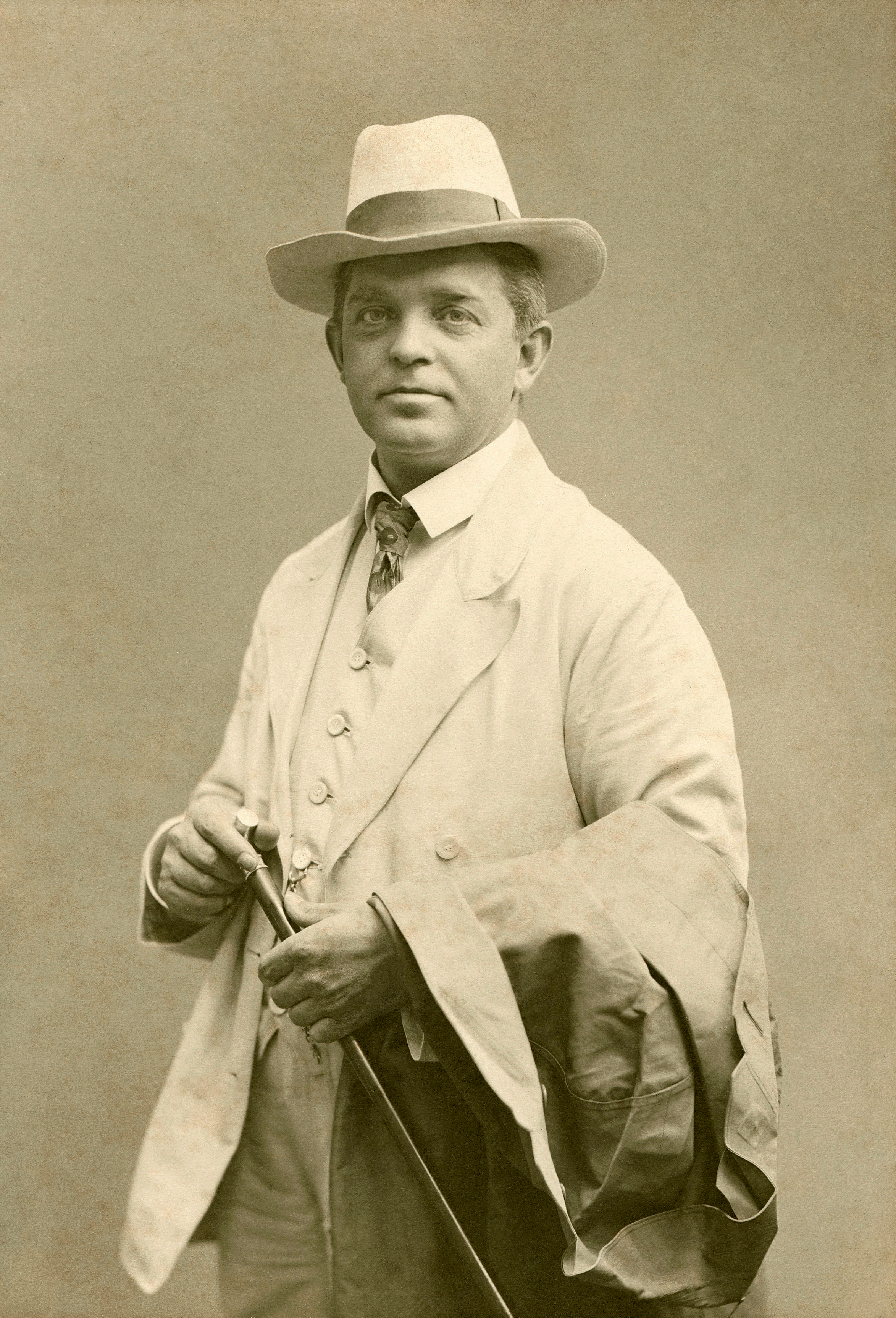|
Per Nørgård
Per Nørgård (; born 13 July 1932) is a Danish composer and music theorist. Though his style has varied considerably throughout his career, his music has often included repeatedly evolving melodies—such as the infinity series—in the vein of Jean Sibelius, and a perspicuous focus on lyricism. Reflecting on this, the composer Julian Anderson described his style as "one of the most personal in contemporary music". Nørgård has received several awards, including the 2016 Ernst von Siemens Music Prize. Life and career Per Nørgård was born in Gentofte, Denmark in 1932. He studied with Vagn Holmboe privately at age 17, and then formally at Royal Danish Academy of Music, Copenhagen, with Holmboe, Harald Høffding and Herman David Koppel. From 1956 to 1957, he subsequently studied in Paris with Nadia Boulanger, who had taught many leading composers of the time. Nørgård soon gained his own teaching positions, first at the Odense Conservatory in 1958, and then at the Royal Dani ... [...More Info...] [...Related Items...] OR: [Wikipedia] [Google] [Baidu] |
Grove Music Online
''The New Grove Dictionary of Music and Musicians'' is an encyclopedic dictionary of music and musicians. Along with the German-language ''Die Musik in Geschichte und Gegenwart'', it is one of the largest reference works on the history and theory of music. Earlier editions were published under the titles ''A Dictionary of Music and Musicians'', and ''Grove's Dictionary of Music and Musicians''; the work has gone through several editions since the 19th century and is widely used. In recent years it has been made available as an electronic resource called ''Grove Music Online'', which is now an important part of ''Oxford Music Online''. ''A Dictionary of Music and Musicians'' ''A Dictionary of Music and Musicians'' was first published in London by Macmillan and Co. in four volumes (1879, 1880, 1883, 1889) edited by George Grove with an Appendix edited by J. A. Fuller Maitland in the fourth volume. An Index edited by Mrs. E. Wodehouse was issued as a separate volume in 1890. In ... [...More Info...] [...Related Items...] OR: [Wikipedia] [Google] [Baidu] |
Helsinki Music Centre
sv, Musikhuset i Helsingfors , image = Centro Musical de Helsinki, Finlandia, 2012-08-14, DD 01.JPG , caption = Helsinki Music Centre in August 2011, shortly before opening , former_names = , building_type = Concert Hall , architectural_style = , structural_system = , cost = 189 million euros (building 166 M€, equipment 23 M€) YLE Radio 1 , location = , , address = Mannerheimintie 13 A , client = |
Babette's Feast
''Babette's Feast'' ( da, Babettes Gæstebud) is a 1987 Danish drama film directed by Gabriel Axel. The screenplay, written by Axel, was based on the 1958 story of the same name by Isak Dinesen (Karen Blixen). It was produced by Just Betzer, Bo Christensen and Benni Korzen, with funding from the Danish Film Institute. ''Babette's Feast'' was the first Danish cinema film of a Blixen story. It was also the first Danish film to win the Oscar for Best Foreign Language Film. The film premiered in the ''Un Certain Regard'' section of the 1987 Cannes Film Festival. Plot The elderly and pious Protestant sisters Martine (Birgitte Federspiel) and Filippa (Bodil Kjer) live in a small village on the remote western coast of Jutland in 19th-century Denmark. Their late father was a pastor who founded his own Pietistic conventicle. Lacking new converts, the aging sisters preside over a dwindling, but faithful, elderly congregation. The story flashes back 49 years, showing the sisters in th ... [...More Info...] [...Related Items...] OR: [Wikipedia] [Google] [Baidu] |
Erling Møldrup
Erling Møldrup (1943 - 2016) was a Danish classical guitarist best known for championing Danish guitar music from all periods. Born in Aarhus, Møldrup grew up as an only child in Nørregade, in the inner city, in a music loving workers family. He started apprenticeship as a mason, like his father, but soon fell in love with the guitar. At the age of 15 he started to take classes at the Aarhus Folk Music School where he heard classical guitar music for the first time and his talent was spotted by the teachers. Later on, at the Danish Royal Academy of Music in Aarhus, Møldrup received his initial training under Jytte Gorki Schmidt, obtaining his academy diploma in 1972. He has performed around the world as a soloist, chamber musician and with various orchestras. He has also toured as a guest lecturer. The first of many recordings by him appeared in 1975; among them are J. S. Bach's lute works and the complete guitar works of Per Nørgård. He played repertoire from all periods — ... [...More Info...] [...Related Items...] OR: [Wikipedia] [Google] [Baidu] |
Adolf Wölfli
Adolf Wölfli (February 29, 1864 – November 6, 1930) (occasionally spelled Adolf Woelfli or Adolf Wolfli) was a Swiss artist who was one of the first artists to be associated with the Art Brut or outsider art label. Early life Wölfli was born in Bern. He was abused both physically and sexually as a child, and was orphaned at the age of 10. He thereafter grew up in a series of state-run foster homes. He worked as a '' Verdingbub'' (indentured child laborer) and briefly joined the army. He was charged with the attempted sexual abuse of minors and was sentenced to a prison term. In 1895, following another similar arrest, he was admitted to the Waldau Clinic, a psychiatric hospital in Bern where he would live out the rest of his life. He was very disturbed and sometimes violent upon admission, leading to him being kept in isolation during his early time at the hospital. He suffered from psychosis, which led to intense hallucinations. Creative works At some point after his admiss ... [...More Info...] [...Related Items...] OR: [Wikipedia] [Google] [Baidu] |
Serialism
In music, serialism is a method of Musical composition, composition using series of pitches, rhythms, dynamics, timbres or other elements of music, musical elements. Serialism began primarily with Arnold Schoenberg's twelve-tone technique, though some of his contemporaries were also working to establish serialism as a form of atonality, post-tonal thinking. Twelve-tone technique orders the twelve notes of the chromatic scale, forming a tone row, row or series and providing a unifying basis for a composition's melody, harmony, structural progressions, and variation (music), variations. Other types of serialism also work with set (music), sets, collections of objects, but not necessarily with fixed-order series, and extend the technique to other musical dimensions (often called "parameter (music), parameters"), such as duration (music), duration, Dynamics (music), dynamics, and timbre. The idea of serialism is also applied in various ways in the visual arts, design, and architectu ... [...More Info...] [...Related Items...] OR: [Wikipedia] [Google] [Baidu] |
Carl Nielsen
Carl August Nielsen (; 9 June 1865 – 3 October 1931) was a Danish composer, conductor and violinist, widely recognized as his country's most prominent composer. Brought up by poor yet musically talented parents on the island of Funen, he demonstrated his musical abilities at an early age. He initially played in a military band before attending the Royal Danish Academy of Music in Copenhagen from 1884 until December 1886. He premiered his Op. 1, '' Suite for Strings'', in 1888, at the age of 23. The following year, Nielsen began a 16-year stint as a second violinist in the Royal Danish Orchestra under the conductor Johan Svendsen, during which he played in Giuseppe Verdi's ''Falstaff'' and '' Otello'' at their Danish premieres. In 1916, he took a post teaching at the Royal Danish Academy and continued to work there until his death. Although his symphonies, concertos and choral music are now internationally acclaimed, Nielsen's career and personal life were marked by man ... [...More Info...] [...Related Items...] OR: [Wikipedia] [Google] [Baidu] |
Bent Sørensen (composer)
Bent Sørensen (born 18 July 1958) is a Danish composer. He won the prestigious Grawemeyer Award for Music Composition in 2018 for ''L'isola della Città'' (2016). He studied composition with Ib Nørholm at the Royal Danish Academy of Music and with Per Nørgård at the Royal Academy of Music in Aarhus. Sørensen treats major/minor tonalities with microtonal inflections and blurs the harmonies with glissandi. Examples of this technique can be found in his trombone concerto "Birds and Bells", a work for orchestra and choir "Echoing Garden", and his violin concerto "Sterbende Gärten", which took the prestigious Nordic Council Music Prize in 1996. His early works deal with folksong in prosaic way. Sørensen has composed in a variety of mediums, including opera (his "Under the Sky" was premiered in 2004 at the Royal Opera House in Copenhagen), orchestra, choir, chamber ensemble and solo instruments, but notably he has not composed any electroacoustic music. Since 2008 he has be ... [...More Info...] [...Related Items...] OR: [Wikipedia] [Google] [Baidu] |
Karl Aage Rasmussen
Karl Aage Rasmussen (born 13 December 1947 in Kolding, Denmark) is a Danish composer and writer. Composition Quotation and particularly collage played an important role in his music from the early 1970s, but increasingly he used pre-existing musical material in new connections and for new purposes, most often in a densely woven montage of small idioms which in themselves were too tiny to work as quotes, but were put together so closely as to create entirely new patterns. He continued to use montage technique, but the non-directional expression was gradually replaced by developmental forms. This is apparent in music for the stage and was later continued in works such as ''A Symphony in Time'' and the string quartets ''Solos and Shadows'' and ''Surrounded by Scales''. The chamber symphony ''Movements on a Moving Line'' marks the beginning of a long period dominated by an interest in time and tempo, here as a kind of time-travel where the same music seems to appear and disappear in ... [...More Info...] [...Related Items...] OR: [Wikipedia] [Google] [Baidu] |
Hans Gefors
Hans Gefors (born 8 December 1952 in Stockholm) is a Swedish composer. He has lived in Lund since the mid-1990s. Selected works * ''La boîte chinoise'', for guitar (1975) * ''Poeten och glasmästaren'', chamber opera (1979, libretto: Lars Forssell after Baudelaire) * ''Slits'' for orchestra (1981) * ''Christina'', opera in two acts (1982–86, libretto: Lars Forssell och Hans Gefors) * ''Whales weep not!'', a cappella chorus (1987, D. H. Lawrence) * ''Twine'' (Music no 3) for orchestra (1988) * ''En obol'', song-cycle (1989, Lars Forssell) * ''Der Park'', opera in three acts (1986–91, libretto: Botho Strauss och Hans Gefors) * ''Vargen kommer'', opera in three acts (1994–96, libretto: Kerstin Perski * ''Lydias sånger'', song-cycle for mezzo-soprano and orchestra (1995-96 from the poem of Hjalmar Söderberg ''Den allvarsamma leken'') * ''Clara'', opera in two acts (1997–98, libretto: Jean-Claude Carrière) * ''Kabaretsånger'' (2001, Jonas Gardell) * ''Njutningen (La Jouissa ... [...More Info...] [...Related Items...] OR: [Wikipedia] [Google] [Baidu] |
Hans Abrahamsen
Hans Abrahamsen (born 23 December 1952) is a Danish composer born in Kongens Lyngby near Copenhagen. His '' Let me tell you'' (2013), a song cycle for soprano and orchestra, was ranked by music critics at ''The Guardian'' as the finest work of the 21st-century. His opera ''The Snow Queen'' was commissioned and premiered by the Royal Danish Theatre in 2019. Biography Early life His interest in composition and piano began after hearing his father playing piano. His first attempts at "little melodies" were designed to be played with the only two fingers on his right hand that were capable of playing the instrument. After realizing that he would not be able to progress, he shifted his focus to the French horn. From 1969 to 1971, he studied horn, music theory, and music history at the Royal Danish Academy of Music in Copenhagen. While at the conservatory, his music was inspired by his mentors Per Nørgård and Pelle Gudmundsen-Holmgreen. In the 1980s, he continued his studies atten ... [...More Info...] [...Related Items...] OR: [Wikipedia] [Google] [Baidu] |




